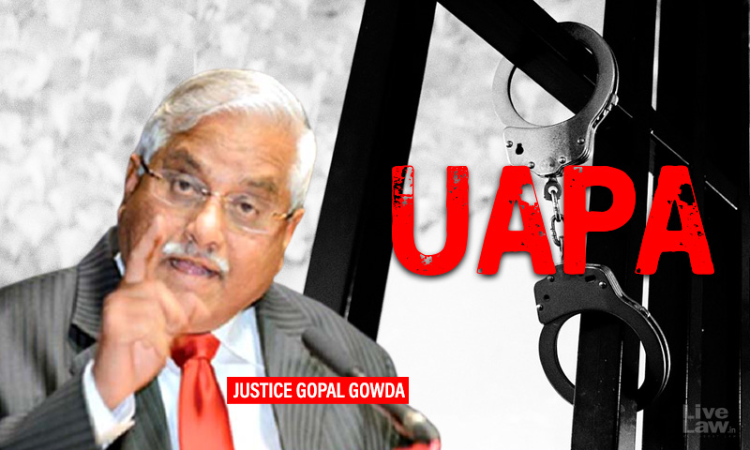Supreme Court's Watali Judgment Requires Reconsideration As It Rendered The Grant Of Bail Impossible In UAPA Cases: Justice Gopal Gowda
Mehal Jain
25 July 2021 12:20 PM IST

“The Supreme Court judgment in NIA v. Zahoor Ahmad Shah Watali (2020) ruled that it is not permissible for courts to even engage in a detailed analysis of prosecution case while considering bail under UAPA and to weigh whether evidence adduced by prosecution is even sufficient or not. "The Watali judgement further ties the hands of the defence. The grant of bail is rendered impossible till the end of the trial, which could take generations. The judgment needs to be reconsidered"
Next Story


